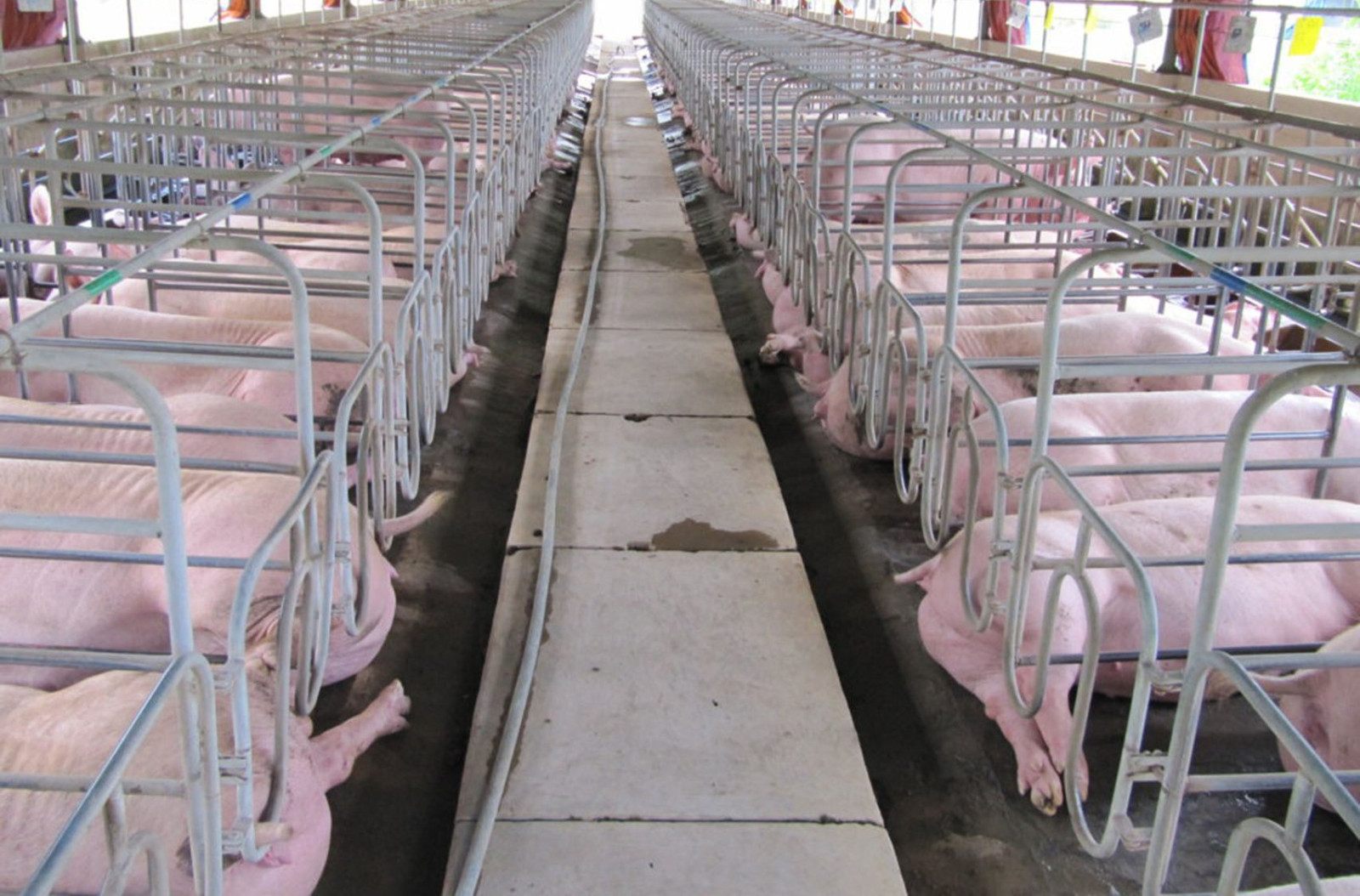Husbandry to ensure market supplies
Thanks to relatively favorable weather conditions and controlled animal diseases, livestock farms in the province have focused on restocking to supply the market during the 2024 Lunar New Year.
Successfully implementing disease prevention and control measures, the livestock sector of the province has achieved stable development. In the photo: Model of a pork farm operated by the Joint Stock Company
Sustainability
To ensure a stable supply of poultry meat for the 2024 Lunar New Year holiday, the agricultural sector of Binh Duong province has implemented various measures to tightly control disease outbreaks, particularly avian influenza. In 2023, instances of disease outbreaks among livestock and poultry in the province existed; however, they were effectively controlled not to spread extensively. As a result, the province's livestock industry has maintained steady growth, ensuring a safe food supply for the market.
According to the evaluation of the Provincial Department of Livestock, Veterinary Medicine, and Aquaculture, the duck population has increased due to a recent increase in duck prices. However, there has been a slight decrease in the populations of cattle, buffalo, geese, and quails. Not only maintaining growth rates, but also expanding modern, closed-loop, biologically safe livestock farming models and supply chains from production to product consumption have helped farmers enhance the sustainable value of their products. The quality of livestock has been improved, with 147 poultry farms, including companies investing in breeding of poultry for breeding, egg-laying, and meat production, totaling over 8 million animals, accounting for 68% of the total livestock. There are also 56 farms for meat duck farming, with a population of 686,000, accounting for 72.06% of the total livestock. Additionally, there are 262 pig farms, with nearly 700,000 animals, accounting for 74.4% of the total livestock.
Cold chicken farm owner Luu Thi My Hang of Muong Dao hamlet, Long Nguyen commune, Bau Bang district predicts that the demand for products during the Tet holiday will increase, prompting households and farms to replenish their stocks. In recent years, many livestock farms have shifted towards bio-safe farming to meet the growing consumer demand for product quality and food safety hygiene.
According to Mr. Tran Minh Duc, Head of the Veterinary Livestock Station in Phu Giao district, there have been no outbreaks of disease and prices have remained stable, providing reassurance for livestock farmers to develop their herds. As a result, the livestock population in the area has consistently grown. The total number of pigs is over 260,000, the total number of free-range poultry is 3 million, the total number of buffaloes is 172, with a production of nearly 10 tons of pork and a total of 3,715 cattle.
To stay focused
Poultry farming has experienced growth partly due to the relatively effective control of diseases in the agricultural sector. However, the concern of disease outbreaks cannot be taken lightly, especially during the peak period of serving the 2024 Lunar New Year. In fact, in October 2023, in Thanh Tuyen commune, Dau Tieng district, a poultry farming household recorded 1,455 positive cases of the A/H5N1 avian influenza virus. The local authorities have also coordinated with specialized agencies to carry out zoning, control, and prevent the spread of epidemic outbreaks.
The Binh Duong authorities assess the risk of an outbreak of animal diseases in general, including avian influenza. The reason is due to the relatively large poultry population in the province, high livestock density, and limited implementation of biosecurity measures. Mr. Tran Phu Cuong, Director of the Livestock, Veterinary and Aquaculture Department, stated that the agricultural sector is guiding livestock farmers to apply advanced techniques in breeding, feed, and implement biosecurity farming processes to ensure disease safety and minimize risks. At the same time, it is recommended that livestock farmers participate and expand their supply chains in order to stabilize prices and outputs for their products. In addition, the agricultural sector should enhance coordination with local authorities to monitor the development of livestock production and disease outbreaks, while also implementing herd expansion and pig restocking in the province to ensure a stable supply.
Mr. Cuong further stated that in the context of the ongoing complex epidemic, the Provincial Livestock, Veterinary and Aquatic Products Department actively coordinates with local authorities to regularly vaccinate livestock and poultry herds. Additionally, they collaborate to organize sanitation, disinfection, detoxification campaigns to prevent and control the epidemic, and promote sustainable livestock development.
Reported by Thoai Phuong – Translated by Vi Bao


